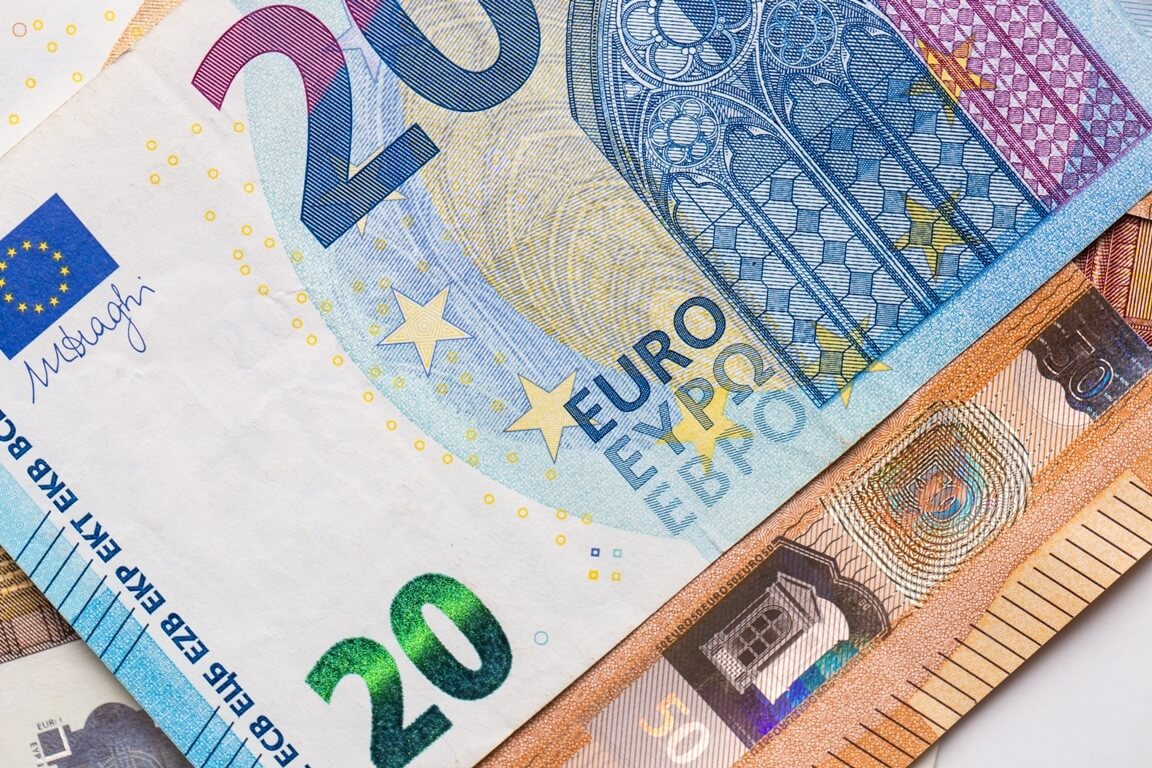The U.S. dollar plunged low Wednesday while Euro rallied

The U.S. dollar plunged low Wednesday while Euro rallied
The greenback traded in the red today, edging toward the multi-month lows it reached in the previous session. A missile strike on Poland bolstered the currency briefly due to its safe-haven nature. However, after the news said that Ukrainian air defenses had likely caused the blast, the U.S. currency plummeted again.
The dollar index tumbled by 0.44%, trading at 105.9 against the basket of six major currencies. Moreover, the greenback remained flat versus the Japanese yen, exchanging hands at 139.32 on Wednesday. The currency hovered near Tuesday’s two-and-a-half-month low of 137.67 against the JPY. At the same time, the dollar dropped by 0.5% on the Swiss franc at 0.9394, staying close to Tuesday’s seven-month low.
On the other hand, the Euro surged forward by 0.67% at $1.04205 on Wednesday. It was inching towards the four-and-a-half month high of $1.0481 hit on Tuesday. U.S. producer price inflation came in below traders’ expectations. This news bolstered bets that last week’s weaker consumer price inflation was just the beginning and that other similar reports would follow. If U.S. inflation continues lowering, the U.S. Federal Reserve will be able to slow or even pause the aggressive rate increases. The latter supported the greenback, pushing it to multi-decade highs versus the Euro, sterling, and yen this year, though.
Today geopolitical concerns also influenced trading. The Euro soared from as low as $1.028 on Tuesday when news of the explosion in Poland caused investors to rush to the safety of the greenback.
Ukraine and NATO member Poland initially announced that the blast was probably caused by a Russian missile. However, on Wednesday, Poland and NATO stated that a Ukrainian air defense missile was likely the culprit.
What do the analysts say?
Kim Mundy, the senior currency strategist at the Commonwealth Bank of Australia, noted that geopolitical risks continue to pressure Forex markets. They will likely cause more volatility in the coming weeks.
On Wednesday, the British Pound fluctuated. According to new data released today, inflation in Britain continues to soar, unlike the United States. It skyrocketed to a 41-year high in the 12 months to October. The Sterling was initially unchanged after this report. However, the broader rally caused by an easing of geopolitical tension supported the currency. Consequently, it added 0.36% to $1.1910 today.
The muted initial reaction is the result of this data being in line with the Bank of England’s expectations – noted Simon Harvey, the head of FX analysis at Monex Europe. The British government plans to announce a new budget on Thursday, though. Investors expect finance minister Jeremy Hunt to release information about future tax hikes and spending cuts.
In September, the Pound plunged to a record low of $1.0327 after the current finance minister’s predecessor Kwasi Kwarteng introduced a package of unfunded tax cuts.
How are the EM currencies faring?
Most currencies outside Asia rallied against the declining dollar. The South African rand surged forward by 0.6% on Wednesday. At the same time, Mexico’s peso traded near its 2-1/2-year highs. The currency added 0.2% today.
On the other hand, stocks decreased. MSCI’s emerging market share index tumbled down from two-month peaks, shaving off 0.4%. But the Turkish benchmark was the exception, climbing up more than 2%. South African shares also jumped by 0.3%.
On Wednesday, U.S. President Joe Biden stated that Russia may not have fired the missile that killed two people in Poland. This announcement helped assuage fears of increasing geopolitical tensions. Russian stocks still plunged by 0.3% but managed to cut some losses. However, Polish stocks dropped from five-month highs, lowering by 2.0%.
The Polish zloty experienced a volatile session today. It shaved off 1% before soaring by 0.6% against the euro. Meantime, the Russian rouble exchanged hands at around 60 per dollar.
Marek Drimal, the lead CEEMEA strategist at Societe Generale, stated that Forex markets became scared by the initial news on a Tuesday evening, referring to the blast in Poland. But markets calmed again after the news surfaced that Russia mightn’t be directly involved and there was no direct attack on Poland. Consequently, other central European currencies strengthened versus the euro again. Hungary’s forint gained 0.9% after suffering a three-day losing streak.
Furthermore, the world’s biggest economies announced their intentions to carefully pace their interest rate hikes. The officials are trying to avoid spillovers. They also warned about increased volatility in currency moves.
The post The U.S. dollar plunged low Wednesday while Euro rallied appeared first on FinanceBrokerage.
0 Response to "The U.S. dollar plunged low Wednesday while Euro rallied"
Post a Comment